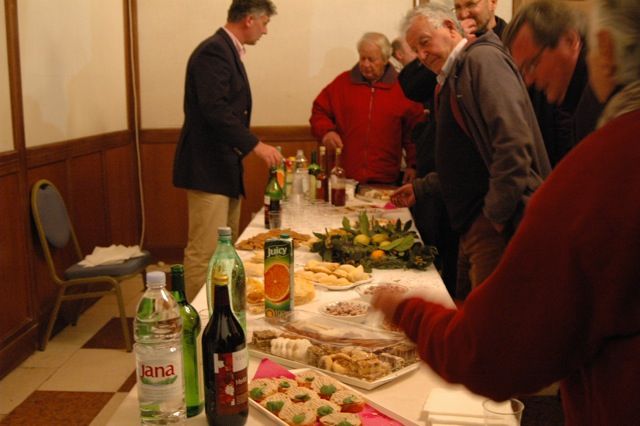A first in Hvar’s local politics: report from the ‘Lista za ponos mista’.
My father and his father before him were both active politicians. Between them they spanned the days of the Kingdom of Serbs, Croats and Slovenes after the First World War to the emergence of independent Croatia. I have never been involved in politics, apart from voting in elections whenever I have the right to do so. When I lived in the UK, I regretted the lack of proportional representation. However, I valued the system which gave one access to one’s local Member of Parliament. My constituency had a succession of excellent MPs, notably Michael Barnes (Labour – the Old Kind), Barney Hayhoe and Nirj Deva (Conservative). Nirj Deva was the first Asian MP elected to the British Parliament, so even as a backbencher he was influential, which proved useful during the Homeland War against Croatia (1991 – 1995), when he regularly sent me Hansard extracts on the debates about the war in the Commons. Questions he asked on our behalf always received fulsome replies from Ministers.
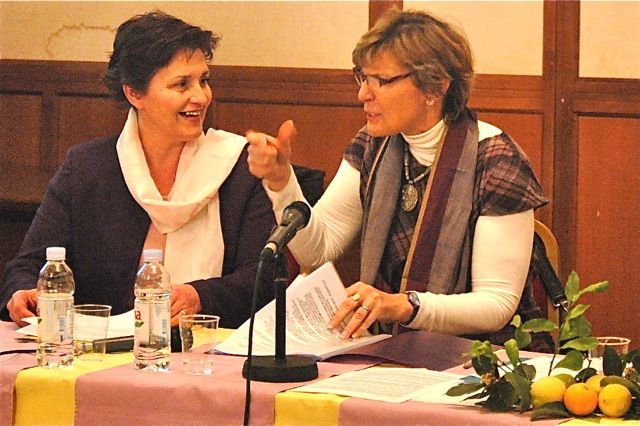
In Croatia the system is different, and voters are mostly separated from their elected parliamentary representatives. Each party draws up a list of candidates in preferential order, so a candidate low on the list will only get in if the party obtains a large amount of the overall vote. Therefore we vote for the party, not for the person, which is a great pity if one’s local candidate is one who would be good at representing local interests, but is not in favour with the party hierarchy.
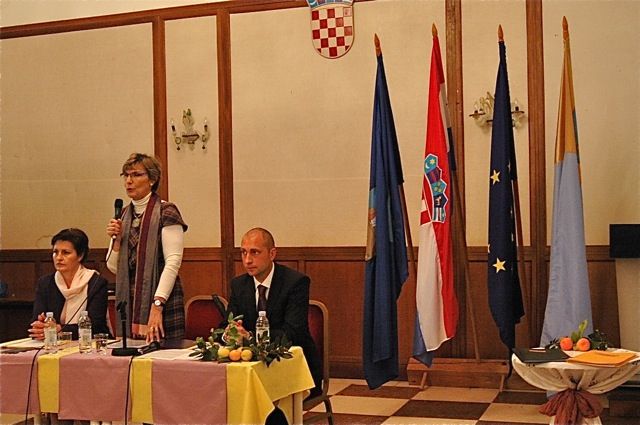
The situation is better in local politics, especially in the small constituencies which make up Hvar Island, where probably every last detail of a local politician’s virtues and defects is likely to be known. Nine months ago the elections for Council members in Hvar Town saw unexpected success for a newly formed party of idealistic activists, formed under the banner ‘Lista za ponos mista’ (Party For Pride In Our Place), with Katija Zaninović Dawnay as the leader. One of the promises the fledgling party made at the time was to keep the electorate informed of their activities on the local Council. They have done this through the intervening months by posting regularly both on Facebook and on the notice board beside Hvar’s marketplace.
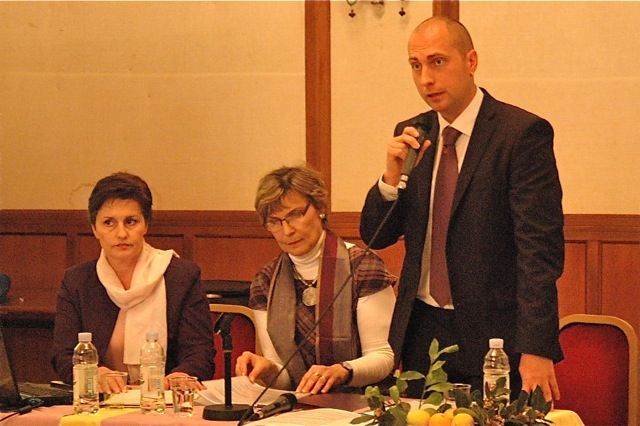
Last evening, fulfilling their election promise to the full, they held a public meeting in the Loggia in Hvar Town to give personal accounts of their work so far, and to answer citizens’ questions, either directly or, if necessary, later in written form after consultation with the Council or Mayor. This is the first time such a meeting has been organized by a political party during the working term of a mandate, rather than as a pre-election strategy, and there was a good turnout.
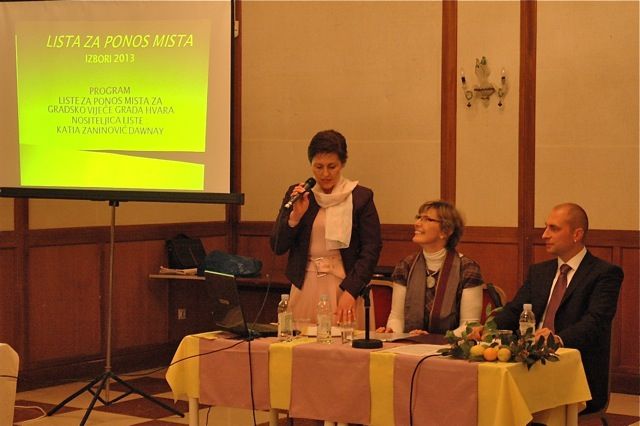
The party’s governing principles are Unselfishness (Nesebičnost), Integrity (Integritet), Objectivity (Objektivnost), Responsibility (Odgovornost), Openness (Otvorenost) and Honesty (Iskrenost). The party’s prime movers, Katija Zaninović Dawnay, Marko Jeličić and Nada Jeličić (who are not related) gave an excellent account of themselves. They have been energetic and tireless in protecting citizens’ rights and pressing for better conditions in the town, limited only by the fact that the Council can make recommendations based on their debates, but implementation depends on the Mayor. The work of the Lista za ponos mista has encompassed a great variety of subjects, including proper use of the rubbish containers, pressing for explanations as to how concessions for use of public spaces such as beaches are awarded, and responsible use of open public spaces. They are actively involved in developing and promoting cultural tourism, through the Charity ‘Dignitea’, which is also active on a practical level, from cleaning beaches to organizing cultural events. They have successfully supported financing the extension of Hvar Town’s middle school, which otherwise would have to close. Their recommendations for better enforcement of the laws on Public Order have been accepted in principle. These include appointing more Town Wardens (Komunalni redari) to provide 24-hour cover; the wardens would have recognizable uniform T-shirts, and might carry leaflets to inform transgressors of the relevant bye-laws.
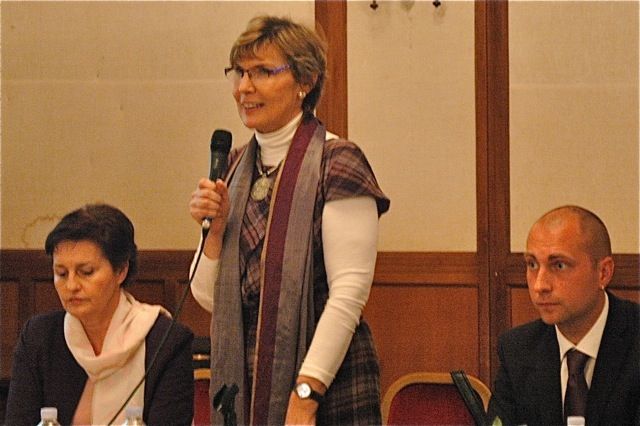
There was lively questioning from the floor, and some topics were deferred for further investigation. The meeting was filled with positive energy: all present evidently shared the same goal of making life better, not only for themselves but for succeeding generations. The evening ended in true civilized Dalmatian style with excellent home-made refreshments, served with elegant good-humour and perfect English manners by Katija’s husband Rupert Dawnay, so everyone departed happy.
